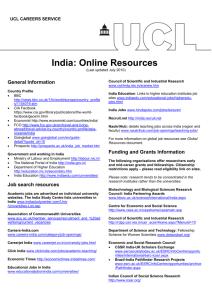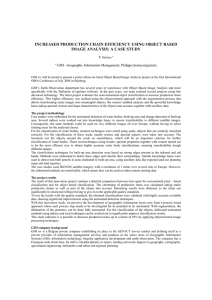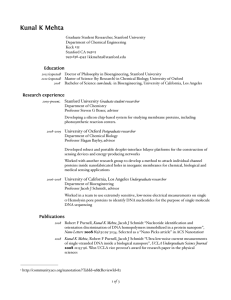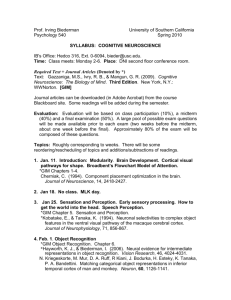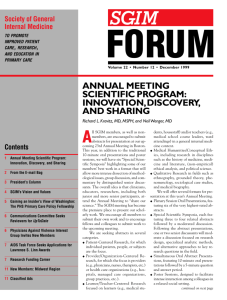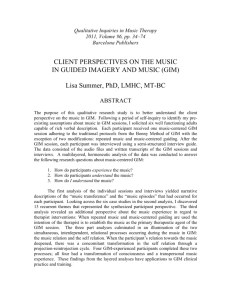General Internal Medicine Career Options
advertisement
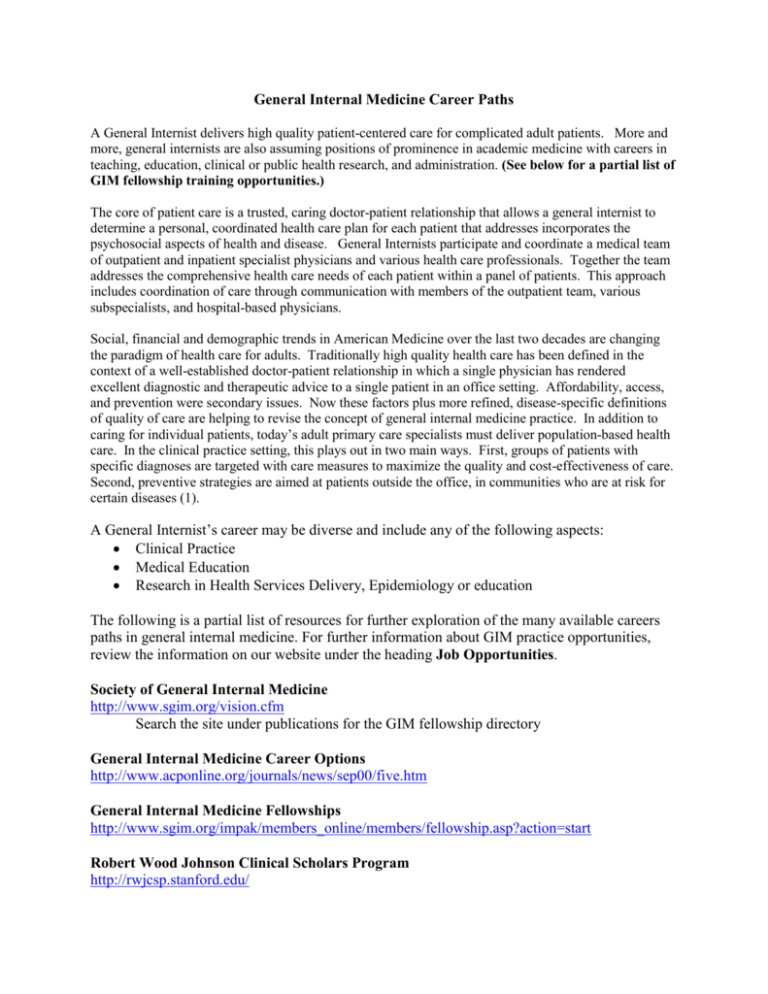
General Internal Medicine Career Paths A General Internist delivers high quality patient-centered care for complicated adult patients. More and more, general internists are also assuming positions of prominence in academic medicine with careers in teaching, education, clinical or public health research, and administration. (See below for a partial list of GIM fellowship training opportunities.) The core of patient care is a trusted, caring doctor-patient relationship that allows a general internist to determine a personal, coordinated health care plan for each patient that addresses incorporates the psychosocial aspects of health and disease. General Internists participate and coordinate a medical team of outpatient and inpatient specialist physicians and various health care professionals. Together the team addresses the comprehensive health care needs of each patient within a panel of patients. This approach includes coordination of care through communication with members of the outpatient team, various subspecialists, and hospital-based physicians. Social, financial and demographic trends in American Medicine over the last two decades are changing the paradigm of health care for adults. Traditionally high quality health care has been defined in the context of a well-established doctor-patient relationship in which a single physician has rendered excellent diagnostic and therapeutic advice to a single patient in an office setting. Affordability, access, and prevention were secondary issues. Now these factors plus more refined, disease-specific definitions of quality of care are helping to revise the concept of general internal medicine practice. In addition to caring for individual patients, today’s adult primary care specialists must deliver population-based health care. In the clinical practice setting, this plays out in two main ways. First, groups of patients with specific diagnoses are targeted with care measures to maximize the quality and cost-effectiveness of care. Second, preventive strategies are aimed at patients outside the office, in communities who are at risk for certain diseases (1). A General Internist’s career may be diverse and include any of the following aspects: Clinical Practice Medical Education Research in Health Services Delivery, Epidemiology or education The following is a partial list of resources for further exploration of the many available careers paths in general internal medicine. For further information about GIM practice opportunities, review the information on our website under the heading Job Opportunities. Society of General Internal Medicine http://www.sgim.org/vision.cfm Search the site under publications for the GIM fellowship directory General Internal Medicine Career Options http://www.acponline.org/journals/news/sep00/five.htm General Internal Medicine Fellowships http://www.sgim.org/impak/members_online/members/fellowship.asp?action=start Robert Wood Johnson Clinical Scholars Program http://rwjcsp.stanford.edu/ UCLA General Internal Medicine Fellowships http://gim.med.ucla.edu/education/education.php Medical Education Fellowships UCLA, Dr. LuAnn Wilkerson USC also has an excellent Masters in Medical Education Program Quality of Care RAND, UCLA Health Services Research Fellowship UCI Health Policy Research Center will also be sponsoring a Masters in Clinical Science for those interested in health policy or clinical research careers. Contact Sheldon Greenfield, MD for further information. 949-824-7286. Duke University General Internal Medicine Fellowship Programs http://www.medicine.duke.edu/modules/fellowship/index.php?id=6 Hospitalist Careers http://www.hospitalmedicine.org//AM/Template.cfm?Section=Home Women’s Health Fellowships The online Journal of Women’s Health publishes a directory of training programs. http://www.liebertpub.com/publication.aspx?pub_id=42


